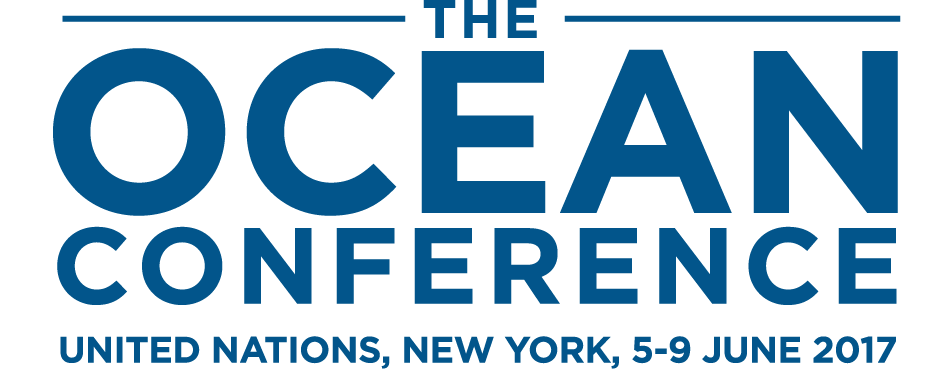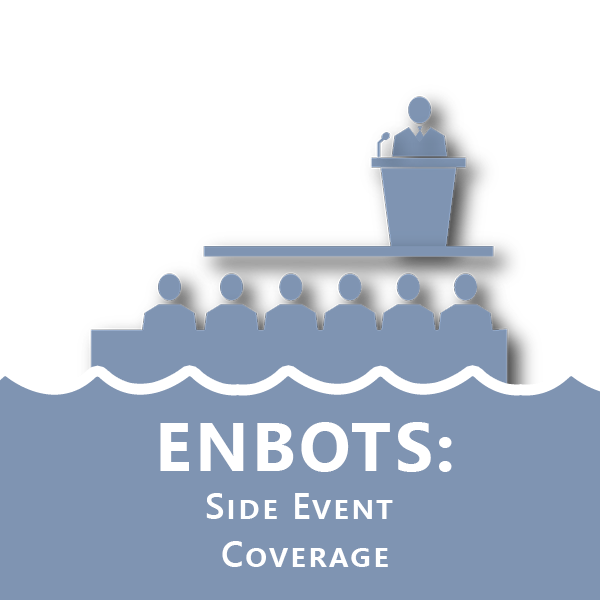Daily report for 26 September 2017
1st Meeting of the Conference of the Parties to the Minamata Convention on Mercury (COP1)
Delegates attending Minamata COP1 met in the Committee of the Whole (COW) on Tuesday. Contact groups on reporting, the financial mechanism, and technical issues convened. An informal group on regional centres met in the evening. Friends of the Chair on secretariat functions convened in bilateral meetings throughout the day. Delegates also welcomed Argentina and Croatia as the newest members of the Convention, bringing the total ratifications to date to 83.
COW
In the morning, the COW heard progress reports from the contact groups on reporting and the financial mechanism; and from informal discussions. The informal group on regional centres, facilitated by María Florencia Grimalt, Argentina, requested more time to consider CRP.7 on regional and sub-regional centres for capacity building, technical assistance and technology transfer on the Minamata Convention.
Reporting on the Friends of the Chair group on the permanent secretariat, COW Chair Fernando Lugris identified “common directions” including that there: are policy and financial aspects; is desire to continue cooperation and coordination in the chemicals and wastes cluster; is need to maintain the legal autonomy of the Convention; and is need for better understanding of staff costs. He announced that Sverre Thomas Jahre, Norway, and Yingxian Xia, China, will co-chair the group and asked delegations to make their heads of delegation available for informal consultations with the Co-Chairs.
MATTERS STIPULATED BY THE CONVENTION FOR ACTION BY THE COP: Guidance on BAT/BEP and Inventories for Releases: The Secretariat introduced the document (UNEP/MC/COP.1/24). The EU noted that the COP will only be able to work once the scope of the guidance has been identified and to report on this at COP2. BRAZIL expressed preference for the establishment of an expert group by COP2 to identify BAT/BEP for relevant sources. SWITZERLAND and NORWAY, supported by GABON, highlighted the need to collect information to better understand point source releases and to compile this information by COP2. The US noted that the identification of relevant sources should be done by parties and the compilation done by the secretariat by COP2. NIGERIA supported the interim Secretariat’s work to develop guidance documents. Drawing attention to training carried out in the country, DEMOCRATIC REPUBLIC OF THE CONGO indicated its plan to work on inventories of different point sources.
Delegates requested the interim Secretariat to prepare a draft decision.
Thresholds: The interim Secretariat introduced the compilation of additional information on the use of mercury waste thresholds (UNEP/MC/COP.1/26 and Add.1), the informal process led by Japan (UNEP/MC/COP.1/INF/10) and report on the outcomes of the Mercury Waste Project (UNEP/MC/COP.1/INF/6).
JAPAN introduced CRP.8 that, inter alia, proposes establishing an ad hoc intersessional working group. Several countries supported intersessional work, with many calling for regional balance. SWITZERLAND announced it was ready to make a “substantial technical contribution.” INDIA asked for the inclusion of non-parties in the expert group.
The EU and NORWAY observed the complexity of the work, including different types of thresholds and waste categories, with the EU saying that the group should identify if all products or only mercury-added products should be deemed mercury waste. THAILAND suggested that threshold values may not be necessary for wastes consisting of or containing mercury or mercury-added products. MEXICO and the GAMBIA noted that thresholds should consider specific local situations.
ZMWG indicated that no threshold is necessary for waste consisting of, or containing mercury or mercury compounds, and, with IPEN, called for the inclusion of civil society in the expert group. Highlighting mercury waste in Kyrgyzstan, INDEPENDENT ECOLOGICAL EXPERTISE said the thresholds should be low to prevent extraction of mercury from wastes.
The COW forwarded this issue and the relevant draft decision to a contact group on technical matters, co-chaired by Karissa Kovner, US, and Teeraporn Wiriwutikorn, Thailand.
Contaminated Sites: The interim Secretariat introduced the guidance on the management of contaminated sites (UNEP/MC/COP.1/27).
COLOMBIA, MALAYSIA, the DOMINICAN REPUBLIC, CHINA, IPEN, and the BCRC-RUSSIAN FEDERATION supported the development of the guidance. Many countries expressed support for the draft roadmap. The US characterized the roadmap as “a bit ambitious.”
THAILAND, SWITZERLAND, the US, the AFRICAN GROUP and others expressed interest in participating in intersessional work. BRAZIL called for regional balance and involvement of experts from both the health and environment sectors.
The EU called for the guidance to provide information on addressing contaminated sites with limited resources, with MEXICO expressing willingness to share its experiences. The AFRICAN GROUP called for work on definitions. SWITZERLAND highlighted the need for the guidance to include financing possibilities for remediation, including levies on waste disposal. INDONESIA called for the guidance to include information on contaminated soils.
CHILE noted the need for public awareness and capacity building, and a participatory approach to risk assessment. HONDURAS noted that the guidance that could be used to formulate national guidelines. SYRIA stressed the importance of including information on contamination due to war.
DOMINICAN REPUBLIC, supported by PERU, emphasized the need for consideration of prevention of contamination and urged for technical assistance and capacity building in this area. IPEN urged COP1 to reach consensus on the way forward on the guidance.
Further discussion was forwarded to the contact group on technical matters.
Matters for Action by the COP under articles 3, 4, 5, 14 and 16: The interim Secretariat introduced the document (UNEP/MC/COP.1/22).
On article 3 (supply sources and trade), the EU and JAPAN suggested the COP consider trade in mercury compounds in future. ZMWG proposed, opposed by the US, considering the inclusion of mercury compounds at COP3. Chair Lugris proposed, and delegates agreed, to reexamine the issue of trade in mercury compounds at future COPs.
On article 4 (mercury-added products), delegates agreed to request the secretariat to compile information provided by parties and prepare a report regarding the possible inclusion of additional mercury-added products in Annex A for review at COP4.
On article 5 (manufacturing processes), delegates agreed that the COP requests the secretariat to compile information provided by parties and prepare a report regarding the possible inclusion of additional manufacturing processes in Annex B for review at COP3.
On article 14 (capacity building, technical assistance and technology transfer), delegates agreed that the COP requests the secretariat to request submissions and reports from parties and other stakeholders and to present the information received to COP2 for its consideration.
On article 16 (health aspects), WHO highlighted the collaboration opportunities with the Convention’s secretariat. The AFRICAN GROUP supported the secretariat’s continued collaborations, with GHANA specifically requesting more active engagement with International Labour Organization (ILO). Delegates agreed to request the secretariat to continue working in cooperation and collaboration with WHO and ILO and to ensure that any list of health-related issues presented to future meetings of the COP for its consideration is developed in a collaborative manner.
MATTERS FOR ACTION BY COP1: Matters Stipulated under the Convention: Emissions Guidance: Noting the specificity of the coal used in Indian plants, INDIA suggested some textual changes to the draft decision prepared by the interim Secretariat to reflect local situations. The COW then approved the amended draft decision and forwarded it to the plenary for adoption.
Implementation and Compliance Committee (ICC): The interim Secretariat introduced the document (UNEP/MC/COP.1/10). COW Chair Lugris requested regions to finalize their nominations to the ICC by Wednesday.
Financial Rules: The interim Secretariat introduced the financial rules (UNEP/MC/COP.1/13 and INF.9). The EU called for the rules to be clear and leave no room for interpretation. Brazil, for GRULAC, drew attention to CRP.6 that includes text on the SIP in the financial rules. Delegates agreed to forward this matter to a contact group on programme of work and budget.
MATTERS RECOMMENDED BY THE INC: Programme of Work and Budget: The interim Secretariat introduced the documents (UNEP/MC/COP.1/20, 21 and Add.1, 2, 3/Rev.1 and 4).
The EU and SWITZERLAND observed that some costs were higher than expected, including the cost of meetings, with SWITZERLAND also citing high staff costs and non-consistent methodologies for calculating staff costs. The US further requested information on planned activities. In response, the interim Secretariat drew attention to new documents.
The UNEP Global Mercury Partnership Advisory Group reported on its activities to facilitate capacity building. UNITAR, for the Mercury Group of the Inter-Organization Programme on Sound Management of Chemicals (IOMC) reported on its activities, including support to 105 countries to develop Minamata Initial Assessments (MIAs).
UNECE, UNIDO, and UNDP provided updates on activities performed with parties and partner agencies in support of Minamata Convention implementation at national to international levels. AMAZON COOPERATION TREATY ORGANIZATION (ACTO) highlighted the need for more work on mercury in the Amazon.
Chair Lugris highlighted that a contact group would be established to further consider this issue.
CONTACT GROUPS
FINANCIAL MECHANISM: This contact group met in the morning. On the SIP, many supported the Minamata Secretariat as host. Views diverged on structural arrangements, with many expressing flexibility. Some developed countries said that the costs for any guidance body could come from voluntary contributions, but noted this may not deter contributions. One regional group suggested a smaller committee, while another regional group preferred a committee as a subsidiary body. On duration, developing countries preferred unlimited duration, citing ongoing implementation needs. Developed countries supported a limited duration noting the time-bound nature of some obligations under the Convention, and others requested a specific proposal on the proposed length. The group was suspended for participants to engage in informal discussions.
REPORTING: Seeking consensus, participants agreed on the 4-year cycle for full reporting, making the first report due on 31 December 2021, and the 2-year cycle to report on key issues including supply sources and trade and wastes. The group cleaned the text relating to the reporting format. Participants then discussed effectiveness evaluation using CRP.1 submitted by Canada, and made comments on the indicative planning timeline.
IN THE CORRIDORS
On day three, delegates were “instructed” to look for new ways to express themselves to reach agreement. In the financial matters contact group, Chairs asked delegates to “get creative,” to draw up new connections or divisions in the GEF MoU and its decision, and to sketch options for the SIP’s governance. In the COW, Chair Lugris called for creativity, with many thinking of ways to “color outside the lines” currently boxing in the options for secretariat arrangements.
To this end, delegates were called into “confessionals” in the form of bilateral consultations with the Co-Chairs of the Friends of the President’s group, which one observer thought would carve out space between a partially-integrated secretariat and one that stands alone. These issues will sculpt much of the budget and programme of work discussions. With all this, delegates were conscious of the imminent arrival of Heads of State and ministers on Thursday. “Get some sleep, but remember, in 14 hours, this must all be done,” said the COW Chair, closing the day’s session.
-->
Specific funding for coverage of the Ocean Conference - June 2017, has been provided by the
XXX, XXX, and XXX
-->
IISD Reporting Services is a division of the International Institute for Sustainable Development (IISD).
Earth Negotiations Bulletin (ENB), ENB+, and Knowledge Management for Sustainable Development
are branches within IISD Reporting Services.
© 1992-2017, IISD Reporting Services. All rights reserved.







